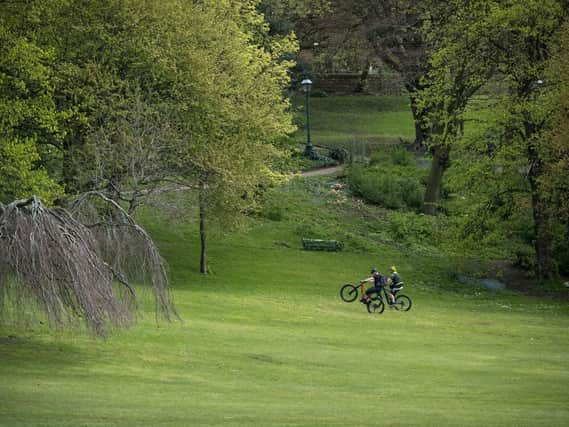Readers' letters - March 15


I ride an e-bike, which I purchased last September in 2017. I only ride for approximately five to eight miles a day as a way of exercise when the weather is okay.On two or three occasions, I have met other cyclists who ride a ‘normal’ bike and have been called a cheat (on two occasions or more) and also a ‘free rider’. You still have to pedal the bike and the electric is called for as ‘pedal assist’. It’s not completely electric.It’s not very nice, riding at your own pleasure and pace, and a cyclist you meet shouts across to you, “cheat”. I was very disappointed for them.I cannot understand why cyclists want to insult each other and why a small minority have so much dislike for an e-bike rider, but I have found this out on various internet bike forums.I don’t wear all the normal cycling gear, Lycra etc because I have the e-bike for my own pleasure. I wear what I wish.By the way, my age is 78 and I have not rode a bike for around 60 years – so some of the ‘younger’ cyclists just despise an e-bike as far as I can make out.I have tried a normal bike but found it did not suit me at my age, but, saying that, there are a lot of elderly people cycling. However, I decided on the e-bike for some exercise and it helps me to get out in the fresh air when I want.e-bike ridervia email
Advertisement
Hide AdAdvertisement
Hide AdDiabetes guidelines There is no one-size-fits all approach when it comes to making food choices, but it is important that people with diabetes, and those at risk of Type 2, are supported to choose the right foods for them to improve their health and quality of life. That’s why we have issued new Diabetes UK nutrition guidelines for healthcare professionals. For the first time, the guidelines show how people with Type 2 diabetes might be able to achieve remission. Eating certain foods such as vegetables, fruits, wholegrains, fish, nuts and pulses can also help manage blood glucose levels and reduce the risk of cardiovascular disease in people with both Type 1 and Type 2 diabetes, as well as reduce the risk of Type 2 diabetes. These foods are usually associated with the Mediterranean-style diet, but can be adapted to cultural and personal preferences. Eating less red and processed meat, refined carbohydrates − such as white bread and rice − and drinking fewer sugar sweetened drinks, is also recommended. Being active daily and achieving at least 150 minutes of physical activity over a week through a variety of exercise can help people with diabetes lead healthy lives, and prevent the onset of Type 2 diabetes for those at risk. We hope that the new guidelines will help people enjoy food, while making healthy choices and being more active. The nutrition guidelines are available at www.diabetes.org.uk/nutrition-guidelines.Stephen RyanHead of the North at Diabetes UK
‘Enemies of the liberal state’
I warmly commend Peter Rodgers for his superb letter (WP Letters, March 7) exposing the true Corbyn behind the mask. He and Abbott and McDonell are ‘enemies of the liberal state’. Their refusal to condemn Russia over the recent nerve agent attacks speaks volumes.These three must never ever be allowed to govern our nation.Dr Barry Claytonvia emailBoycott might spare fans painSo it is suggested that we punish Vladimir Putin for boycotting the soccer World Cup. Big deal! After all, we aren’t going to win the tournament and it might spare fans a great deal of heartache.Tim MickleburghAddress supplied
Will anyone notice absence?
Will anyone notice if England boycotts the World Cup in Russia? It would be much better if genuine contenders, like Germany, did so, but they won’t.Henry Cobdenvia email